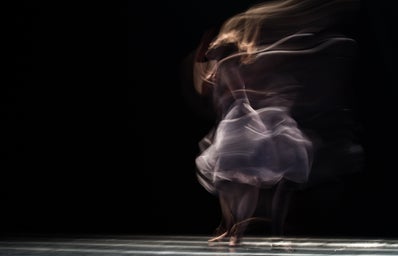Warning: If you haven’t seen Black Swan and you plan to, read this article after! It does contain spoilers!
From the moment of putting on your very first leotard, almost every little ballerina aspires to be a New York City Ballet dancer. Because of the company’s one-of-a-kind prestige and elegance, I know it was indeed a dream of mine and many of my fellow dancers. However, the film Black Swan, released in 2010 and directed by Darron Aronofsky, completely dismantles that daydream of elegance.
The film centers around Nina Sayers, a New York City Ballet company member looking to earn a demanding lead role. Nina, played by Natalie Portman, suffers unspecified mental illnesses that only worsen under pressure. They form themselves in her thoughts, forcing her to have hallucinations of her worst fears. Nina’s perfectionism grows and eventually consumes her. Ultimately, she falls in love with her twisted artistic director, Thomas, thinking he may feel the same.
Black Swan is clearly set up to mirror the motifs of Swan Lake, the actual ballet Nina is performing in. Nina’s mental illnesses result in a fierce struggle between Nina’s inner Black and White Swan.
Eventually, her Black Swan side takes over, kissing Thomas and winning his love. The movie climaxes as White Swan Nina commits suicide during the finale of the ballet, ending her life in the same way her character does in Swan Lake. From a film standpoint, they could not have picked a better ballet to reflect inner struggle, hatred and ultimately deception.
To play their intense roles, Natalie Portman and Mila Kunis trained rigorously for a year to master their characters’ dancing abilities. While the actresses’ initial lack of dance experience definitely wouldn’t make it into the most prestigious ballet company in the U.S., they were far more impressive to watch than I anticipated. Moreover, their acting and portrayal of the storyline were spot-on, and I would choose these two over actual prima ballerinas because of their dedication to character. Portman and Kunis made the gruesome moments of the film take center stage more than the dancing, which I think was a goal of Aronofsky’s, the director.
On the other hand, Black Swan is widely disliked by the dance community. Many believe the film enhances cliches about the dance community and maximizes everything wrong with the industry to make a point. Michele Gifford, a New York City Ballet dancer from 1988 to 2000, tells Thrillist that the Black Swan “is not a sexual character” as she is painted in the film.
This is an example of the inaccuracy and exaggeration of the movie. Natalie Portman’s character, Nina, is told by the artistic director, Thomas, that she needs to portray the dark character sexually. Gifford goes on to discuss the character further with Thrillist: “I think she just knows who she is. There is no doubt. There is no questioning.” In response to Thrillist asking how she would teach the character, Gifford states, “I would tell somebody don’t try to be sexy. That is ridiculous. Find a confidence, find a self-assuredness.” This is far different from how Thomas exaggerates the character.
Black Swan somehow encompasses thrilling and dark characteristics I would have believed to be impossible from a ballet-centered movie. While it ruined a dream I once longed for, it also opened my eyes to the struggles of the ballet world. I agree with Gifford that the themes of this movie have been overstressed for emphasis, but I appreciate the look into a professional dancer’s psyche. Black Swan is critically acclaimed and surely a must-watch for those interested in the arts.
Want to see more HCFSU? Be sure to like us on Facebook and follow us on Instagram, Twitter, TikTok, YouTube and Pinterest!


